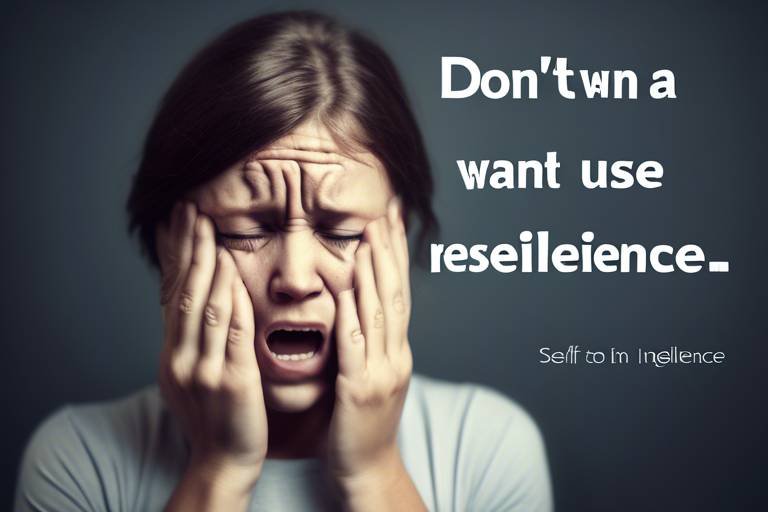Confidence Improving Habits - Mini Guide for Professionals
In today's fast-paced professional world, confidence is not just a nice-to-have trait; it’s a necessity. Whether you’re presenting in front of a boardroom full of executives or collaborating with your team on a project, projecting self-assurance can significantly impact your career trajectory. But what exactly is confidence? It’s more than just a feeling; it’s a state of being that encompasses your belief in your abilities and your capacity to tackle challenges head-on. This guide aims to explore practical habits that can enhance your confidence in professional settings, offering actionable tips and insights to help you project self-assurance and achieve your career goals.
Confidence can be defined as a feeling of trust in one’s abilities, qualities, and judgment. In a professional context, it plays a pivotal role in how we interact with colleagues, make decisions, and navigate our career paths. When you are confident, you are more likely to take risks, voice your opinions, and advocate for yourself. This self-assurance can lead to greater opportunities, stronger relationships, and ultimately, career advancement. However, confidence is not an inherent trait; it can be cultivated through specific habits and practices.
One of the most effective ways to boost your confidence is through daily affirmations. These are positive statements that challenge negative thoughts and promote a healthier mindset. By incorporating affirmations into your daily routine, you can reshape your mindset and foster a more confident outlook. Imagine waking up each morning and telling yourself, “I am capable and deserving of success.” This simple practice can diminish self-doubt and set a positive tone for your day.
To make affirmations truly impactful, they should be personalized. This means crafting statements that resonate with your unique goals and aspirations. Here are some tips for creating effective affirmations:
- Use the present tense: Frame your affirmations as if they are already true.
- Keep them positive: Focus on what you want to achieve rather than what you want to avoid.
- Make them specific: Tailor your affirmations to address particular areas of your life or career.
By tailoring your affirmations, you enhance their effectiveness and encourage a more positive self-image.
Here are some powerful affirmations that professionals can adopt:
- I am confident in my abilities and my contributions to my team.
- I embrace challenges as opportunities for growth.
- I communicate clearly and effectively with others.
Feel free to adapt these examples or create your own that align with your personal and professional goals.
To reap the benefits of affirmations, consistency is key. Try to integrate them into your daily routine, whether it’s during your morning coffee, while commuting, or before you go to bed. The more you repeat these affirmations, the more they will become ingrained in your subconscious, ultimately transforming your mindset.
Another powerful tool for enhancing confidence is visualization. This technique involves mentally rehearsing scenarios in which you envision yourself succeeding. Picture yourself giving a presentation, closing a deal, or leading a meeting with poise and assurance. By vividly imagining these scenarios, you prepare yourself to face real-life challenges with greater confidence.
Setting realistic, achievable goals is crucial for building confidence. When you set goals, you create a roadmap for your success, providing direction and motivation. Achieving these goals, no matter how small, reinforces your self-belief and encourages you to take on new challenges.
To structure your objectives effectively, consider using the SMART goals framework. This method ensures your goals are:
- Specific: Clearly define what you want to achieve.
- Measurable: Identify how you will measure your success.
- Achievable: Set realistic goals that are attainable.
- Relevant: Ensure your goals align with your broader career objectives.
- Time-bound: Set deadlines to keep yourself accountable.
By using this framework, you can create a structured approach to goal-setting that boosts your confidence as you achieve each milestone.
Finally, understanding the importance of tracking your progress towards your goals cannot be overstated. Regularly reviewing your achievements helps reinforce your confidence and motivates you to pursue further challenges. Consider keeping a journal or using a digital tool to document your progress. Reflecting on how far you’ve come can be a powerful reminder of your capabilities and potential.
Q: How long does it take to see improvements in confidence?
A: The timeline can vary for each individual, but consistent practice of affirmations and goal-setting can lead to noticeable changes within a few weeks.
Q: Can visualization techniques really improve my performance?
A: Yes! Many athletes and professionals use visualization to enhance their performance by mentally preparing for success.
Q: What if I struggle to create effective affirmations?
A: Start simple! Focus on one area you want to improve and gradually build your affirmations from there.

Understanding Confidence
Confidence is more than just a buzzword; it's a vital component of professional success. But what exactly is confidence? At its core, confidence is the belief in one's abilities and judgment. It's that inner voice that whispers, "You've got this!" when you're about to tackle a challenging project or present in front of a crowd. In professional settings, confidence plays a crucial role in how we communicate, make decisions, and interact with colleagues and clients.
Imagine walking into a meeting where you need to pitch your ideas. If you're brimming with confidence, you're likely to articulate your thoughts clearly and engage your audience effectively. On the flip side, a lack of confidence can lead to hesitation, poor communication, and missed opportunities. This is why understanding and nurturing your confidence is essential for career growth and building strong interpersonal relationships.
Confidence impacts various aspects of our professional lives, including:
- Decision-Making: Confident individuals are more likely to make bold decisions, take calculated risks, and stand by their choices.
- Networking: When you're confident, you're more inclined to reach out to others, fostering valuable connections that can enhance your career.
- Leadership: Confidence is a key trait of effective leaders. It inspires trust and motivates teams to achieve common goals.
Moreover, confidence can significantly influence how others perceive you. A confident demeanor can create a positive impression, leading to more opportunities and collaborations. Conversely, a lack of confidence might cause others to doubt your capabilities, which can hinder your professional journey.
So, how can you cultivate this essential trait? It starts with self-awareness. Recognizing your strengths and areas for improvement is the first step in building confidence. Consider keeping a journal where you note down your achievements, no matter how small. This practice can help shift your focus from self-doubt to self-empowerment.
In conclusion, understanding confidence is about recognizing its importance in our professional lives. It shapes our interactions, influences our decisions, and ultimately determines our career trajectory. By actively working on building and maintaining confidence, we can unlock our full potential and pave the way for success.

Daily Affirmations
Daily affirmations are more than just a trendy buzzword; they are a powerful tool that can reshape your mindset and boost your confidence in professional settings. Have you ever noticed how your thoughts can influence your mood and actions? Just like a seed planted in fertile soil, positive affirmations can grow into a garden of self-assurance, helping you to flourish in your career. By incorporating positive self-talk into your daily routine, you can actively combat self-doubt and replace it with a strong sense of belief in your abilities.
But how do you create effective affirmations that truly resonate with you? The key lies in crafting personalized statements that align with your goals and values. Think of affirmations as your own personal cheerleaders, ready to uplift you when challenges arise. For instance, if you're aiming for a promotion, an affirmation like, "I am capable and deserving of this promotion," can serve as a reminder of your worth and potential. The more specific and relevant your affirmations are, the more impact they will have on your self-image.
When it comes to crafting your affirmations, here are a few tips to keep in mind:
- Be Specific: Instead of saying, "I am successful," try "I consistently exceed my sales targets."
- Use Present Tense: Frame your affirmations as if they are already true. For example, "I am confident during presentations."
- Make it Personal: Tailor your affirmations to reflect your unique circumstances and aspirations.
Once you've created your affirmations, the next step is to incorporate them into your daily routine. Consistency is crucial! Whether you choose to recite them in the morning while sipping your coffee or write them down in a journal before bed, the key is to make it a habit. Over time, these affirmations will become ingrained in your subconscious, transforming your mindset and enhancing your confidence.
Here are a few powerful affirmations that professionals can adopt:
- "I am a valuable asset to my team."
- "I embrace challenges as opportunities for growth."
- "I communicate effectively and assertively."
Feel free to use these examples as inspiration to create your own affirmations tailored to your unique circumstances. Remember, the more authentic and relatable your affirmations are, the more effective they will be in building your confidence.
To seamlessly integrate affirmations into your daily life, consider setting a specific time each day dedicated to this practice. You might choose to:
- Write them down in a journal every morning.
- Recite them aloud in front of a mirror.
- Set reminders on your phone to prompt you throughout the day.
By making affirmations a regular part of your routine, you’ll find that they can significantly alter your perception of yourself and your capabilities. It's like tuning a musical instrument; with consistent practice, you'll hit all the right notes when it comes to confidence.
In addition to daily affirmations, consider employing visualization techniques to further enhance your confidence. Picture yourself succeeding in your professional endeavors, whether it’s acing a presentation or leading a successful project. This mental rehearsal can prepare you for real-life challenges, making you feel more equipped and confident when the time comes to perform.
Q: How long does it take for affirmations to work?
A: The effectiveness of affirmations can vary from person to person. However, with consistent practice, many individuals report noticeable changes in their mindset within a few weeks.
Q: Can I use affirmations for specific situations?
A: Absolutely! Tailoring affirmations to specific situations can enhance their effectiveness. For instance, if you're preparing for a job interview, affirmations like "I am well-prepared and confident" can be particularly beneficial.
Q: What should I do if I struggle to believe my affirmations?
A: It’s normal to feel skeptical at first. Start with affirmations that feel more believable to you and gradually work your way up to more ambitious statements as your confidence grows.

Creating Effective Affirmations
Creating effective affirmations is a transformative process that can significantly boost your confidence in professional settings. The key lies in crafting statements that resonate with your personal experiences, aspirations, and the challenges you face. Think of affirmations as your personal cheerleaders; they should uplift you, motivate you, and instill a sense of belief in your abilities.
To start, it’s essential to focus on the present tense. Instead of saying, “I will be successful,” try phrasing it as, “I am successful.” This subtle shift not only reinforces your current capabilities but also helps to create a mental image of success that feels attainable. When you speak in the present tense, your mind begins to accept these affirmations as reality, making it easier to embody the confidence you wish to project.
Another crucial aspect is to keep your affirmations specific and personal. General statements like, “I am confident,” may not resonate deeply. Instead, tailor your affirmations to reflect specific situations. For example, you might say, “I communicate my ideas clearly and assertively in meetings.” This specificity makes your affirmations more impactful and relevant to your daily experiences.
Consider incorporating emotional language into your affirmations. Words that evoke feelings can create a more profound connection and enhance the effectiveness of your statements. For instance, instead of saying, “I am a good leader,” you could say, “I inspire my team with my passion and vision.” This not only affirms your leadership qualities but also ignites a sense of excitement and purpose.
Here are a few tips to help you create effective affirmations:
- Be Positive: Frame your affirmations in a positive light. Focus on what you want to achieve rather than what you want to avoid.
- Keep it Short: Short and concise affirmations are easier to remember and repeat.
- Make it Personal: Use “I” statements to make your affirmations feel more personal and direct.
- Repeat Regularly: Consistency is key. Make it a habit to repeat your affirmations daily, preferably in front of a mirror.
Lastly, don’t forget to review and revise your affirmations periodically. As you grow and evolve in your career, your goals and aspirations may shift. Updating your affirmations to reflect these changes will ensure they remain relevant and continue to inspire you. Remember, the journey to confidence is ongoing, and your affirmations should evolve alongside you.
Q: How often should I repeat my affirmations?
A: It’s recommended to repeat your affirmations daily, ideally in the morning or before significant events to set a positive tone for the day.
Q: Can I use affirmations for areas outside of work?
A: Absolutely! Affirmations can be applied to any aspect of life, including personal relationships, health, and self-esteem.
Q: What if I don’t believe my affirmations at first?
A: It’s normal to feel skeptical initially. The more you practice and internalize your affirmations, the more believable they will become over time.

Examples of Affirmations
When it comes to building confidence, affirmations play a pivotal role. These powerful statements can help reshape your mindset and propel you toward your professional goals. By repeating positive affirmations regularly, you can replace self-doubt with a strong sense of self-belief. Here are some examples of affirmations that professionals can adopt:
- I am capable of achieving great things. This affirmation reminds you of your potential and encourages you to pursue your ambitions fearlessly.
- I embrace challenges as opportunities for growth. This statement helps you view obstacles positively, transforming fear into motivation.
- My skills and talents are valuable. Recognizing your worth is crucial in a professional setting, and this affirmation reinforces that belief.
- I communicate confidently and effectively. This affirmation can help you feel more at ease during presentations or meetings, enhancing your overall performance.
- I deserve success and happiness in my career. Believing you deserve success is fundamental to achieving it; this affirmation instills that belief.
These examples serve as a fantastic starting point, but the real magic happens when you tailor them to reflect your unique circumstances and aspirations. Think about what resonates with you personally. For instance, if you're preparing for a big presentation, you could create an affirmation like, "I am well-prepared and will deliver an impactful presentation." This specificity can make your affirmations even more powerful.
Integrating these affirmations into your daily routine can further enhance their effectiveness. Whether you choose to write them down, say them out loud, or even record them and listen to them during your commute, the key is consistency. The more you repeat these affirmations, the more they will become ingrained in your subconscious, helping you project confidence in every professional endeavor.
In conclusion, affirmations are not just feel-good statements; they are tools for transformation. By regularly practicing affirmations tailored to your goals, you can cultivate a mindset that embraces confidence and resilience, ultimately paving the way for greater success in your career.
Q: How often should I practice affirmations?
A: It's best to practice affirmations daily. Integrate them into your morning routine or whenever you feel self-doubt creeping in.
Q: Can affirmations really change my mindset?
A: Yes! By consistently repeating positive affirmations, you can rewire your thought patterns and foster a more confident outlook.
Q: How do I create my own affirmations?
A: Start by identifying areas where you feel less confident. Then, craft statements that counteract those feelings, focusing on positivity and empowerment.

Incorporating Affirmations into Routine
Incorporating affirmations into your daily routine is not just a suggestion; it's a transformative practice that can significantly enhance your confidence levels. Think of affirmations as the fuel that powers your self-belief engine. To make the most out of this powerful tool, consistency is key. Start by integrating affirmations into specific times of your day—perhaps right after you wake up, during your morning coffee, or just before you go to bed. The goal is to create a habit that feels natural and easy to maintain.
One effective way to ensure that you remember to recite your affirmations is to tie them to existing routines. For example, if you have a morning workout, you might choose to say your affirmations while stretching or cooling down. This not only reinforces the positive messages but also helps to create a strong mental association between your affirmations and your physical activities. You can also consider writing your affirmations on sticky notes and placing them in visible spots around your home or workspace, like on your bathroom mirror or computer monitor. This way, you're reminded of your positive statements throughout the day.
Additionally, consider using technology to your advantage. There are various apps available that can send you daily reminders or notifications to practice your affirmations. These can serve as gentle nudges to keep you on track and motivated. However, remember that the key to making affirmations effective lies in your emotional connection to them. When you recite your affirmations, do so with conviction and belief. Visualize the outcomes you desire and feel the emotions associated with achieving those goals. This combination of repetition and emotional engagement can create a powerful shift in your mindset.
It’s also beneficial to reflect on your affirmations regularly. As you progress in your career and personal life, your goals and aspirations may evolve. Adjust your affirmations to align with your current objectives. This ensures that they remain relevant and powerful. For instance, if you initially focused on overcoming self-doubt, but now you're aiming for leadership roles, your affirmations should reflect this new direction. By continually updating your affirmations, you maintain their potency and ensure that they resonate with your current self.
In summary, incorporating affirmations into your routine is about establishing a practice that feels authentic to you. Whether through verbal repetition, written reminders, or emotional visualization, the key is to make affirmations a regular part of your life. With time and consistency, you'll find that these positive statements can help reshape your mindset, boost your confidence, and empower you to pursue your professional goals with greater assurance.
- How long does it take to see results from affirmations? Results can vary, but many people start to notice a shift in their mindset within a few weeks of consistent practice.
- Can I use affirmations for specific situations? Absolutely! Tailoring affirmations to specific challenges or situations can enhance their effectiveness.
- What if I don’t believe my affirmations at first? It’s normal to feel skeptical initially. Focus on the process and gradually allow yourself to embrace the positive changes.

Visualization Techniques
Visualization techniques are powerful tools that can significantly enhance your confidence in professional settings. Imagine standing at the edge of a diving board, peering down into the water below. The thought of jumping can be daunting, but what if you could mentally rehearse the dive beforehand? This is the essence of visualization—mentally picturing yourself succeeding in various scenarios, which can help reduce anxiety and boost your self-assurance.
When you visualize, you're not just daydreaming; you're engaging in a focused practice that can help you prepare for real-life challenges. For instance, if you have a big presentation coming up, take a few moments to close your eyes and imagine yourself delivering it flawlessly. Picture the audience nodding in agreement, the smiles on their faces, and the applause at the end. This mental rehearsal can create a sense of familiarity and comfort, making the actual event feel less intimidating.
To effectively use visualization techniques, follow these steps:
- Find a Quiet Space: Choose a calm environment where you can concentrate without distractions.
- Close Your Eyes: Take deep breaths to relax your mind and body.
- Visualize Success: Picture yourself in a specific scenario, such as nailing a job interview or leading a meeting. See yourself performing confidently and successfully.
- Engage Your Senses: Make your visualization vivid by incorporating sounds, smells, and feelings. The more detailed your mental image, the more effective it will be.
- Repeat Regularly: Make visualization a daily habit, especially before important events. Consistency will reinforce your confidence.
It's essential to remember that visualization is not a magic wand; it requires practice and commitment. Just like building muscle, the more you engage in this mental exercise, the stronger your confidence will become. Over time, you'll find that you approach challenges with a newfound sense of self-assurance, ready to tackle whatever comes your way.
Incorporating visualization techniques into your daily routine can be a game-changer. For example, before an important meeting, take a few minutes to visualize the outcome you desire. Picture yourself articulating your ideas clearly, engaging with colleagues, and receiving positive feedback. This practice not only prepares your mind but also sets a positive tone for the actual event.
Ultimately, the key to effective visualization is to make it personal. Tailor your mental imagery to reflect your unique goals and aspirations. Whether you're preparing for a presentation, a networking event, or even a challenging conversation, visualization can serve as your secret weapon for building confidence and achieving success.
Q1: How long should I spend on visualization each day?
A1: Aim for at least 5 to 10 minutes daily. Consistency is more important than duration.
Q2: Can visualization help with anxiety?
A2: Yes! Visualization can reduce anxiety by familiarizing you with challenging situations, making them feel less intimidating.
Q3: Is visualization effective for everyone?
A3: While it may not work for everyone, many find visualization to be a helpful tool for boosting confidence and performance.

Setting Achievable Goals
Setting realistic, achievable goals is not just a good idea; it’s a game changer for building your confidence. Think of your goals as stepping stones on a path to success. Each stone you step on represents a milestone reached, giving you the momentum to keep moving forward. When you set goals that are within your reach, you create a sense of direction and purpose. This is crucial because without clear objectives, it’s easy to feel lost or overwhelmed, especially in a professional setting.
So, how do you go about setting these achievable goals? It all starts with understanding what you want to accomplish. Ask yourself: What skills do I want to develop? What projects do I want to complete? By having a clear vision, you can start to break down your larger ambitions into smaller, more manageable tasks. This not only makes the process less daunting but also allows you to celebrate small victories along the way, which is a fantastic confidence booster.
One effective method for goal-setting is the SMART goals framework. This approach ensures that your goals are not just vague aspirations but concrete objectives that you can work towards. Here’s a quick breakdown of what SMART stands for:
| Criteria | Description |
|---|---|
| S | Specific: Your goal should be clear and specific, so you know exactly what you're aiming for. |
| M | Measurable: You should be able to track your progress and measure the outcome. |
| A | Achievable: Your goal should be realistic and attainable, considering your current resources and constraints. |
| R | Relevant: Ensure that the goal matters to you and aligns with your broader objectives. |
| T | Time-bound: Set a deadline to create urgency and prompt action. |
For instance, instead of saying, "I want to improve my communication skills," a SMART goal would be, "I will attend a public speaking workshop within the next three months to enhance my presentation skills." This goal is specific, measurable, achievable, relevant, and time-bound, making it a robust objective to work towards.
Another vital aspect of setting achievable goals is tracking your progress. Regularly reviewing your achievements can provide a significant confidence boost. Imagine you’re climbing a mountain; each time you reach a new plateau, you can pause, look back at how far you've come, and feel a sense of accomplishment. This is especially important in professional settings where progress may not always be immediately visible. By keeping a journal or using apps designed for tracking goals, you can visualize your journey and recognize the effort you’ve put in.
In conclusion, setting achievable goals is a powerful strategy for improving your confidence. By understanding what you want, using the SMART framework, and regularly tracking your progress, you create a roadmap that not only guides you but also empowers you to take on new challenges. Remember, every small step you take is a building block towards greater self-assurance and success in your professional life.
- What if I don’t achieve my goals? It's important to remember that setbacks are part of the journey. Reflect on what went wrong, adjust your goals if necessary, and keep moving forward.
- How do I stay motivated while pursuing my goals? Celebrate small wins, seek support from peers, and remind yourself of the bigger picture to maintain motivation.
- Can I adjust my goals over time? Absolutely! Goals should evolve as you grow and your circumstances change. Flexibility is key to staying relevant and engaged.

SMART Goals Framework
When it comes to building confidence, having a clear direction is essential, and that's where the comes into play. This method not only helps you define your objectives but also ensures they are structured in a way that maximizes your chances of success. By making your goals Specific, Measurable, Achievable, Relevant, and Time-bound, you create a roadmap that can guide you through your professional journey with clarity and purpose.
Let's break down each component of the SMART framework:
- Specific: Your goals should be clear and specific, answering the questions of what you want to achieve. Instead of saying, "I want to improve my skills," specify which skills you want to enhance, such as "I want to improve my public speaking skills."
- Measurable: Incorporate criteria for measuring progress. This could be quantifiable metrics like "I will deliver five presentations this quarter." This helps you track your progress and stay motivated.
- Achievable: While it's great to aim high, your goals should be realistic. Consider your current resources and constraints to ensure your goals are attainable. For instance, if you have a full-time job, setting a goal to complete a professional certification within a month might be unrealistic.
- Relevant: Your goals should align with your broader career aspirations. Ask yourself if the goal matters to your career path. For example, if you aspire to be a team leader, a relevant goal might be to take on a project management role.
- Time-bound: Setting a deadline creates urgency and helps you prioritize your tasks. Instead of saying, "I will learn a new software," you could say, "I will learn the new software by the end of the month." This not only helps you stay focused but also builds confidence as you achieve these milestones.
By employing the SMART framework, you're not just setting goals; you're creating a structured plan that enhances your confidence as you progress. Each time you achieve a SMART goal, no matter how small, it boosts your self-assurance and encourages you to take on bigger challenges. Imagine this process as climbing a staircase: each step represents a goal you've achieved, and with each step, you rise higher, gaining confidence and momentum.
Furthermore, it's vital to regularly review and adjust your goals as needed. Life is dynamic, and sometimes what seemed achievable may need modification. By staying flexible and open to change, you maintain your confidence and ensure your goals remain relevant to your evolving career landscape. Remember, the journey of building confidence through SMART goals is ongoing, and every small victory contributes to your overall growth.
1. What are SMART goals?
SMART goals are objectives that are Specific, Measurable, Achievable, Relevant, and Time-bound, designed to provide clarity and structure in goal-setting.
2. How can I ensure my goals are achievable?
To ensure your goals are achievable, assess your current resources, skills, and time commitments. Set realistic expectations based on your circumstances.
3. Can I modify my SMART goals?
Absolutely! It's important to regularly review and adjust your goals to ensure they remain relevant and achievable as your situation changes.
4. How do I measure progress towards my goals?
You can measure progress by setting specific criteria for each goal, such as deadlines, milestones, or performance metrics, and regularly reviewing your achievements.
5. Why is goal-setting important for confidence?
Goal-setting provides direction and a sense of purpose. Achieving goals, no matter how small, boosts self-confidence and encourages you to take on new challenges.

Tracking Progress
Tracking your progress is like having a personal cheerleader in your corner, constantly reminding you of how far you've come and what you’re capable of achieving. When you set goals, it’s easy to get lost in the daily grind and forget about the milestones you’ve reached. By regularly reviewing your achievements, you not only reinforce your confidence but also create a roadmap for future success. Think of it as a treasure map; each 'X' marks the spot where you've conquered a challenge, and the more 'X's' you collect, the closer you get to your ultimate treasure.
To effectively track your progress, consider keeping a journal or using digital tools that cater to your needs. This could be a simple spreadsheet, a dedicated app, or even a good old-fashioned notebook. The key is to find a method that works for you. Here’s a simple structure you might follow:
| Date | Goal | Action Taken | Outcome | Next Steps |
|---|---|---|---|---|
| 2023-10-01 | Improve public speaking skills | Joined a local Toastmasters club | Gained confidence in speaking | Practice speech for next meeting |
| 2023-10-08 | Network with professionals | Attended a networking event | Made 5 new connections | Follow up with connections |
As you fill in your progress tracker, be sure to celebrate your wins, no matter how small they may seem. Each step forward is a step toward building a more confident you! And don't shy away from adjusting your goals as you go along. Life is dynamic, and sometimes our priorities shift. This flexibility not only helps you stay aligned with your true aspirations but also allows you to maintain a positive mindset, reinforcing your self-assurance.
Furthermore, consider sharing your progress with a mentor or a trusted colleague. This not only holds you accountable but also provides an opportunity for constructive feedback. Engaging in conversations about your journey can lead to new insights and strategies that you might not have considered on your own. Remember, confidence is not just about believing in yourself; it’s also about recognizing the support and resources available to you.
- How often should I track my progress? It's beneficial to review your progress weekly or bi-weekly to maintain momentum and motivation.
- What if I don't see progress? Don't be discouraged! Sometimes progress is not linear. Reflect on your actions and adjust your strategies as needed.
- Can tracking progress really boost my confidence? Absolutely! Regularly acknowledging your achievements can significantly enhance your self-esteem and motivation.
Frequently Asked Questions
- What is confidence, and why is it important in a professional setting?
Confidence is the belief in one's abilities and judgment. In a professional setting, it plays a crucial role in how you present yourself, make decisions, and interact with others. A confident individual is more likely to take on challenges, communicate effectively, and inspire trust among colleagues and clients.
- How can daily affirmations help improve my confidence?
Daily affirmations are positive statements that can help reshape your mindset. By repeating affirmations regularly, you can diminish self-doubt and foster a more confident outlook. This practice encourages a shift in thinking, allowing you to focus on your strengths and capabilities instead of your limitations.
- What are some examples of effective affirmations?
Examples of powerful affirmations include:
- "I am capable of achieving my goals."
- "I believe in my abilities and trust my instincts."
- "Every day, I am becoming more confident in my skills."
These affirmations can serve as inspiration for creating your own personalized statements that resonate with your unique circumstances.
- How can I incorporate affirmations into my daily routine?
To seamlessly integrate affirmations into your daily routine, try the following:
- Recite your affirmations each morning while getting ready.
- Write them down in a journal to reinforce their message.
- Use sticky notes in visible places to remind yourself throughout the day.
Consistency is key, so find a method that works best for you!
- What are visualization techniques, and how can they enhance my confidence?
Visualization techniques involve mentally rehearsing successful outcomes in various scenarios. By vividly picturing yourself succeeding, you can create a sense of familiarity and confidence when facing real-life challenges. This mental practice helps reduce anxiety and prepares you to perform at your best.
- How do I set achievable goals to build my confidence?
Setting achievable goals involves creating specific, measurable, and realistic objectives that motivate you. By breaking larger goals into smaller, manageable tasks, you can track your progress and celebrate your achievements. This process reinforces your confidence as you see yourself moving closer to your ultimate aspirations.
- What is the SMART goals framework?
The SMART goals framework is a method for structuring your objectives effectively. It stands for:
- Specific
- Measurable
- Achievable
- Relevant
- Time-bound
Using this framework ensures that your goals are clear and attainable, which can significantly boost your confidence.
- Why is tracking progress important for building confidence?
Tracking your progress towards goals is essential because it allows you to see how far you've come. Regularly reviewing your achievements reinforces your confidence and motivates you to tackle new challenges. It’s like keeping a score in a game; the more you see your progress, the more you want to keep playing!


















